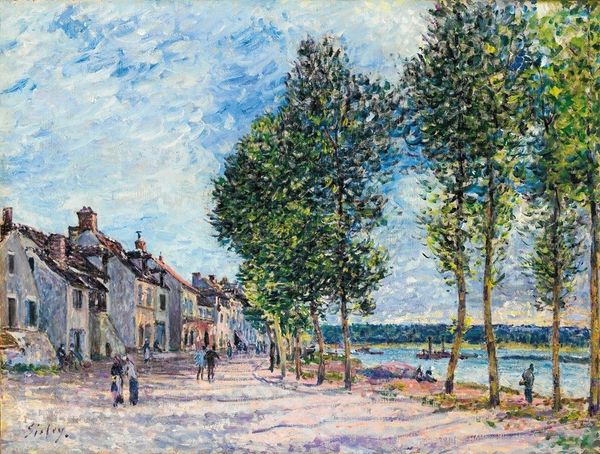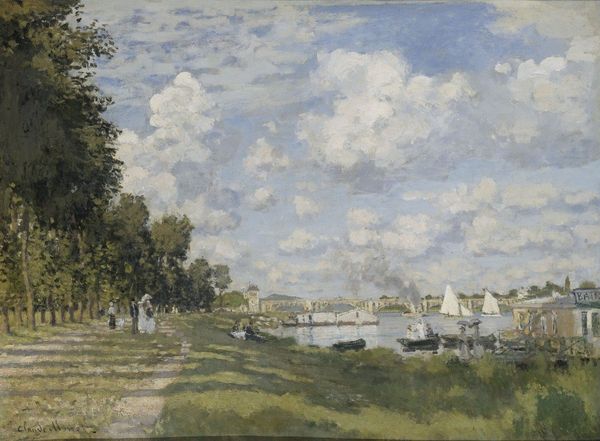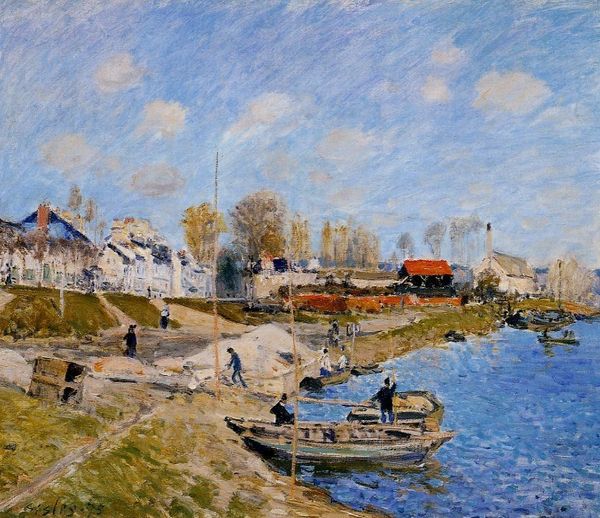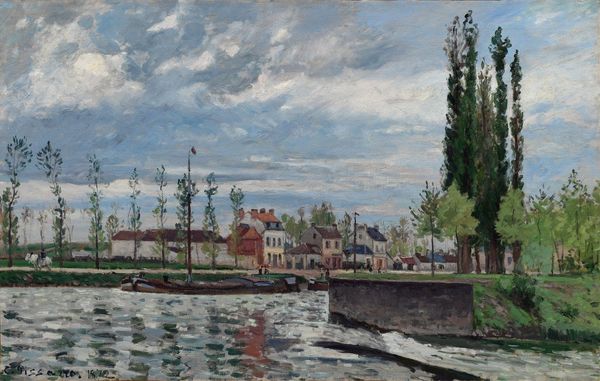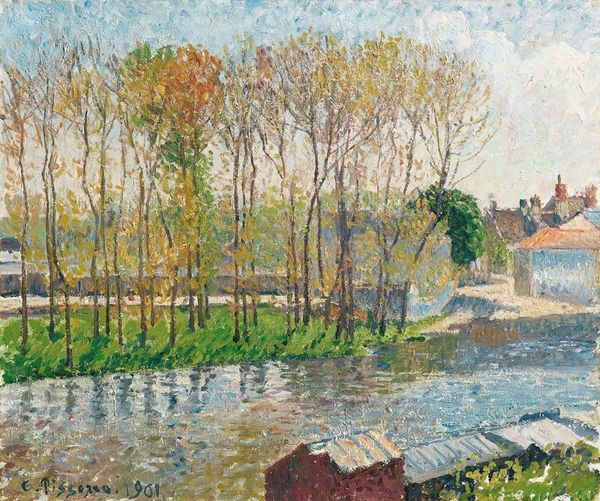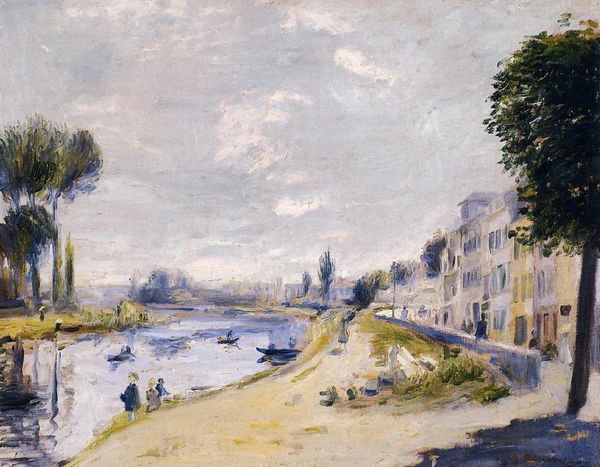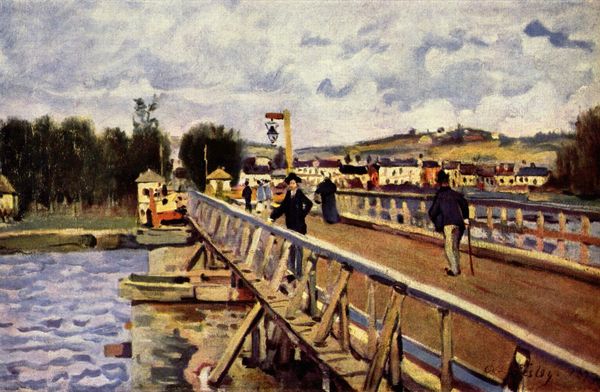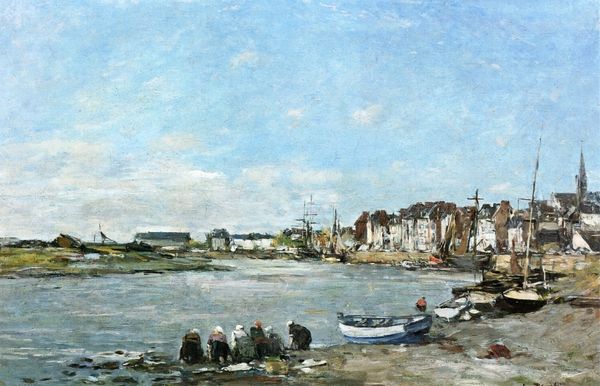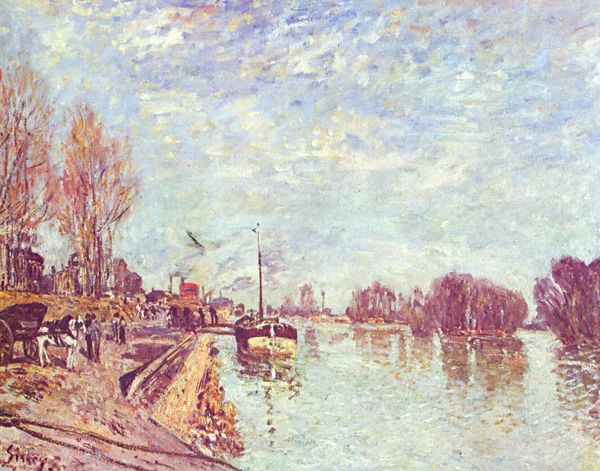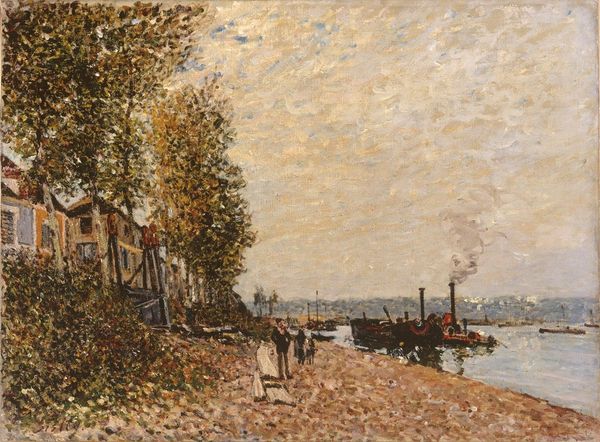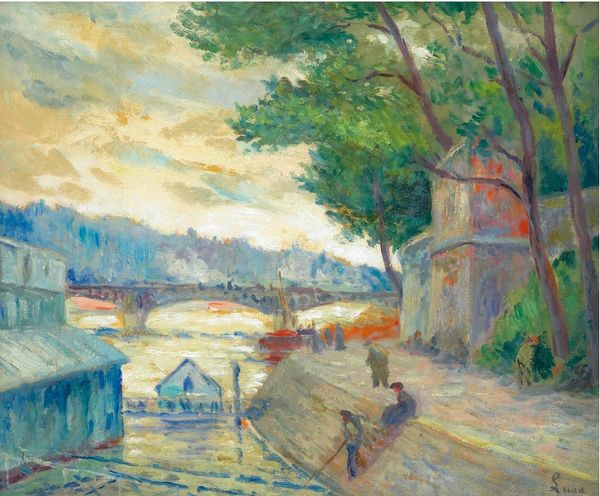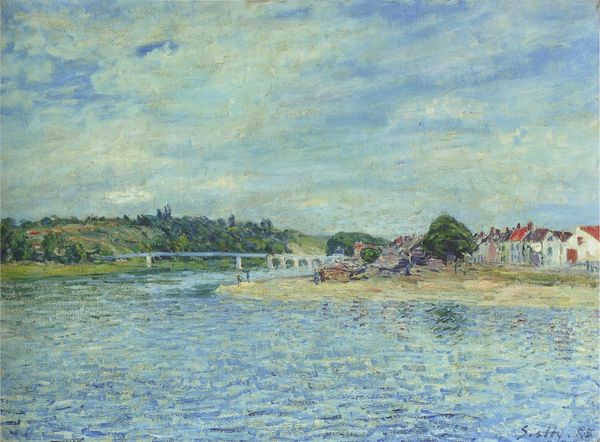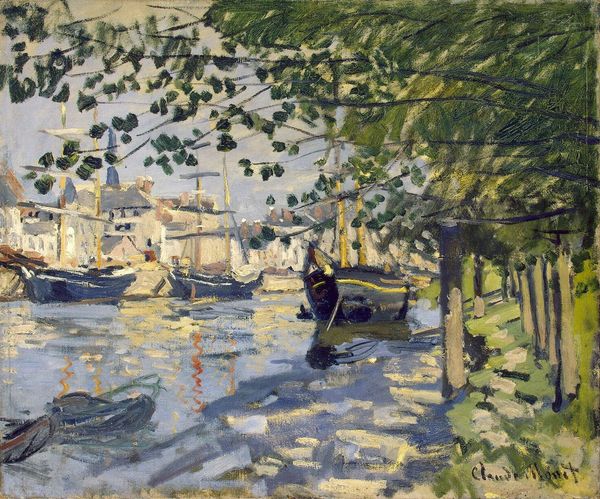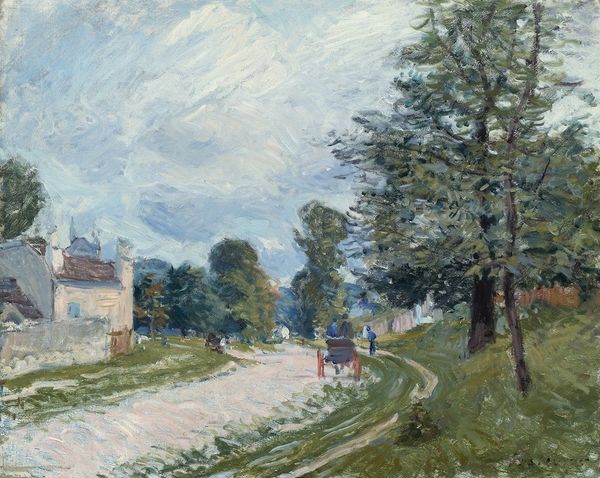
painting, plein-air, oil-paint, impasto
#
painting
#
impressionism
#
plein-air
#
oil-paint
#
landscape
#
perspective
#
oil painting
#
impasto
#
cityscape
#
realism
Copyright: Public domain
Editor: Here we have Claude Monet's "The Bridge at Bougival," created in 1869. It’s an oil painting and there’s something so… ordinary about it. Like a snapshot of everyday life. What catches your eye in this piece? Curator: Immediately, I'm drawn to the impasto technique. Notice how Monet isn't just depicting a scene, but also actively constructing a material surface? Consider how this relates to the burgeoning industrialization of paint production at the time. These pre-mixed paints in tubes enabled this “en plein air” approach, changing artistic labor itself. Editor: So, the materiality of the paint and the accessibility of the medium shaped the artwork itself? Curator: Precisely! Before, pigment preparation was laborious, highly skilled workshop labor. Now, readily available materials freed artists to experiment outdoors and capture fleeting moments. This impacted not only *how* paintings were made but *where* and *when* they were made, disrupting the established artistic system. Observe how the brushstrokes create texture, building volume, almost mimicking the physical structure of the bridge. It's no longer solely about illusion. Editor: It's less about the *what* and more about the *how*. So the painting embodies a shift in artistic labor facilitated by mass production. Curator: Indeed. The choice to depict an ostensibly ordinary scene is itself meaningful in the context of the Realist movement. But don’t you think it goes further, considering how the bridge, this feat of engineering and societal exchange, highlights these changes in modes of production and consumption? Editor: I never thought about it that way. I’m so used to thinking about Impressionism in terms of light and color, it’s fascinating to think of this painting as documenting industrial processes as well. Curator: Exactly! We've only scratched the surface; always remember to examine not just the surface image but the very materials and the circumstances under which they came to be arranged. Editor: I'll definitely look at paintings differently now. Thanks for opening my eyes to this new perspective.
Comments
No comments
Be the first to comment and join the conversation on the ultimate creative platform.
